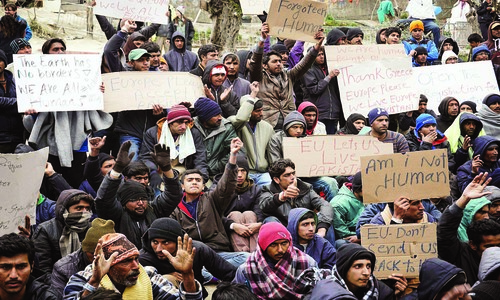BERLIN: Applications for asylum in Germany dropped steeply last year, hard-line Interior Minister Horst Seehofer reported on Wednesday, saying the issue had become less politically explosive as a result.
Seehofer said the official 2018 figures showed Germany had received some 185,000 appeals for asylum — a 16-per-cent decline from the previous year, far below the heights seen at the peak of the refugee influx three years ago.
“We have increasingly got to grips with immigration — we have created order and clear rules that are being enforced,” he told reporters. “But that doesn’t mean we have reached our goal.”
Seehofer said the acceptance rate last year was about 35 per cent. Most of the applicants came from Syria, Iraq, Afghanistan and Iran.
The fall in applications was due to stricter border controls but also international agreements such as a pact with Turkey to limit refugee flows into the European Union, he added.
The arrivals have fallen sharply since 2015-2016 when more than one million people came to Germany, putting the government of Chancellor Angela Merkel under serious strain.
Seehofer, Merkel’s sharpest critic within her conservative camp, said again on Wednesday that the massive influx had empowered the far-right Alternative for Germany (AfD) party, which won nearly 13 per cent of the vote at the last general election in 2017.
He said that was also why he had defended a goal of bringing asylum applications in Germany down to around 200,000.
“Whenever we had numbers below 200,000, there was hardly a [political] debate in Germany,” he said.
“Whenever this number was significantly surpassed, you had new parties being founded such as the [hard-right, now defunct] Republicans or the AfD, which is flourishing, as well as tensions in Europe and divisions in society.”
Published in Dawn, January 24th, 2019














































